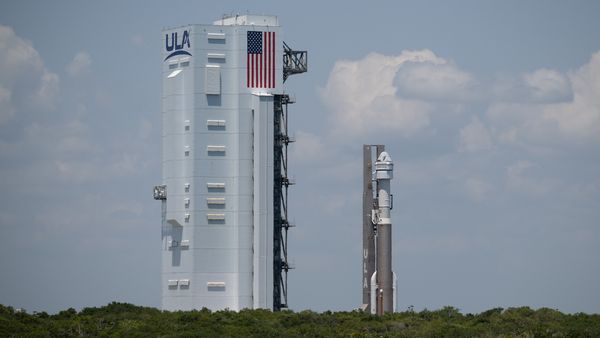
Stanley Druckenmiller, Ray Dalio, and Paul Tudor Jones are among the elite of the elite. Each is among the most successful investors of all time, and all three have long hedge fund careers that have made them -- and their investors -- billions of dollars. It pays to listen to what they have to say.
Unfortunately, most of us don’t have them on speed dial. However, each must file a quarterly 13F disclosure with the SEC detailing their investments, and each regularly shares their opinion at conferences and in interviews.
What they've been saying lately about artificial intelligence shouldn’t be ignored.

Billionaire Stock Pickers Share This in Common
Druckenmiller, Dalio, and Tudor Jones are unique in the way they’ve made their fortunes, but each share at least one thing in common. They’re all willing to bet big when they believe in something.
Druckenmiller famously helped George Soros break the Bank of England by shorting Sterling because they were convinced it didn’t have the political resolve necessary to support the currency. Dalio is perhaps best known for predicting the Great Financial Crisis, and Paul Tudor Jones is famous for shorting stocks on Black Monday in 1987, pocketing $100 million.
It remains to be seen if they’ll be as successful in their opinion on AI, but if history is any guide, it won’t pay to bet against them.
What These Market Gurus Are Saying About AI
These three billionaires have been vocal about artificial intelligence this year. They’ve offered up their opinions publicly at conferences and during interviews, and the holdings of their portfolios also offer clues about how they feel about AI’s potential.
One Stock We Believe Will Win in The AI Race (It's not Nvidia!)
Stanley Druckenmiller manages his own wealth nowadays, but his former hedge fund, Duquesne Capital, was one of the best in the business. It reportedly generated a compound average annual return of about 30% and never had a losing year during its 30-year history.
At a Bloomberg conference earlier this month, Druckenmiller said, “AI is real and could be as transformative as the Internet.” He also said that he’s long Nvidia NVDA and could remain long shares in the semiconductor stock for “two to three more years.”
Nvidia is positioned to profit from AI because its H100 chip, which costs over $30,000, is designed for training and managing workloads associated with large language models (LLMs) like OpenAI’s ChatGPT. In May, Nvidia’s CEO Jensen Huang surprised Wall Street analysts with second-quarter guidance for sales of $11 billion, mainly because of surging investments in infrastructure to support AI development.
DON'T MISS: Here’s What You Can Buy After Nvidia’s Blow-Out Quarter
"If Staples can go up in price in a recession, why can't a company like Nvidia? If their orders and earnings go up 70% in a hard (economic) landing, which is what I think will probably be happening, it's not clear to me that Nvidia will go down despite the lofty valuation level," said Druckenmiller at the conference.
Dalio is also impressed by AI’s potential. Dalio recently retired from his hedge fund Bridgewater, which had grown to over $100 billion in client assets under his tenure because of his successful stock picking.
His opinion of AI is that it could be transformative, but it poses real risks if abused.
“Many of the things you think in a status-quo basis will be revolutionized by this,” said Dalio in a recent interview with CNBC. He also said that “it could either produce a tremendous amount of productivity and raise our living standards and really make things a whole lot better, or it could be used in this war, in various ways to hurt each other."
Although Dalio stepped away from Bridgewater this year, its investment activity is still intriguing. Last quarter, Bridgewater increased its ownership in companies that could profit from the uptake in AI, including Microsoft (MSFT) and Alphabet (GOOGL).
Microsoft integrated ChatGPT into its Bing search engine earlier this year to challenge Alphabet for search market share. In response, Alphabet unveiled its generative AI, Bard, to protect itself. However, the big opportunity from AI for both companies may be increasing data management needs associated with training and running AI applications. Microsoft and Alphabet are among the largest cloud computing solutions providers.
AI advances have also captured Paul Tudor Jones's attention. Tudor Jones told CNBC last month that AI could spark the next boom in productivity. He noted that only a few times in the past 75 years have technological advances been so crucial that they've unleashed 1% to 2% increases in productivity, and AI stands to be the next one of them.
AI's potential to boost productivity substantially has led Tudor Jones to do an about-face on inflation. Previously, he worried that sticky inflation would remain a headwind. However, no he thinks that AI could help the Federal Reserve (and other Central Banks) wrestle inflation lower. In the past, significant gains in productivity have resulted in higher stock market valuations and 15% per year stock market returns, according to Tudor Jones.
He thinks stocks could gain ground this year, but it could be a battle. “I’m not rampantly bullish because I think it’ll be a slow grind,” said Jones. As for inflation, Jones thinks the Fed is done with its hawkish rate hikes.
Jones’ Tudor Investments exited March owning substantial stakes in Advanced Micro Devices (AMD), a semiconductor company challenging Nvidia in the market for next-gen AI chips, and C3.ai (AI), which builds corporate AI solutions.
Advanced Micro Devices recently revealed its MI300 chips designed for use in AI. It plans to begin commercial sales of these fast, efficient chips later this year.
Billionaire Tom Siebel founded C3.ai after he sold Siebel Systems to Oracle (ORCL) for $6 billion in 2006. Siebel currently serves as C3’s CEO.
The opportunity associated with AI isn’t lost on these billionaire investors, and Main Street investors might want to consider following their lead, given their track records of success.







